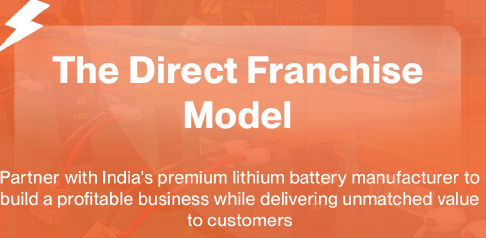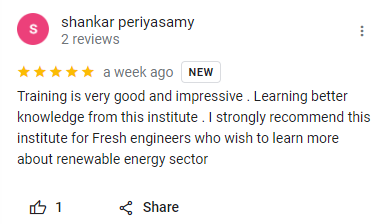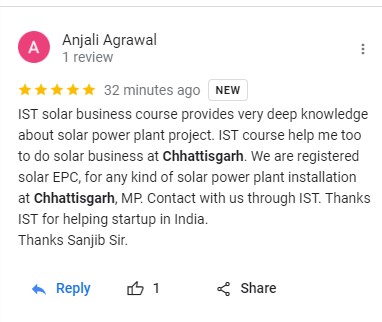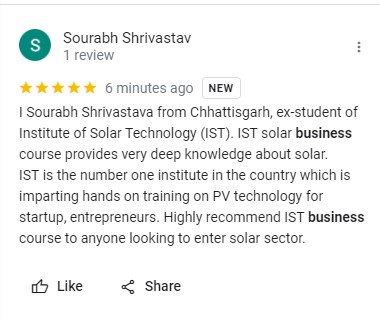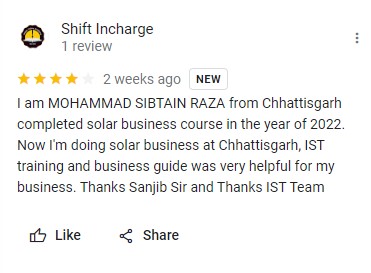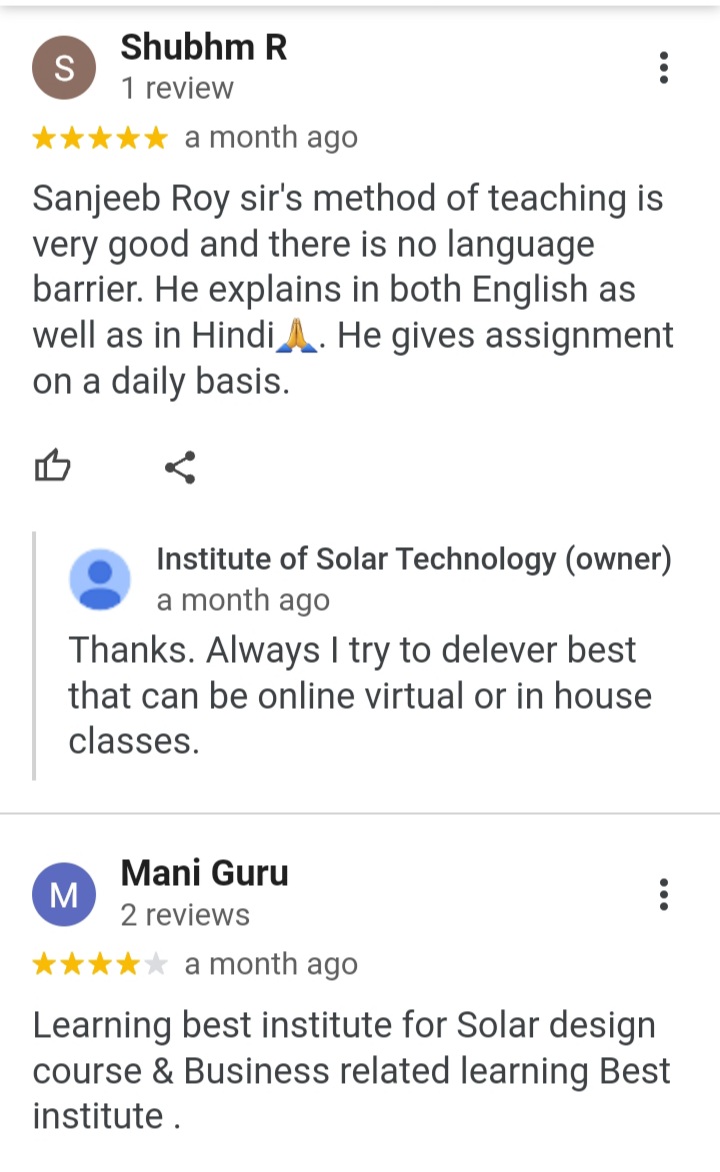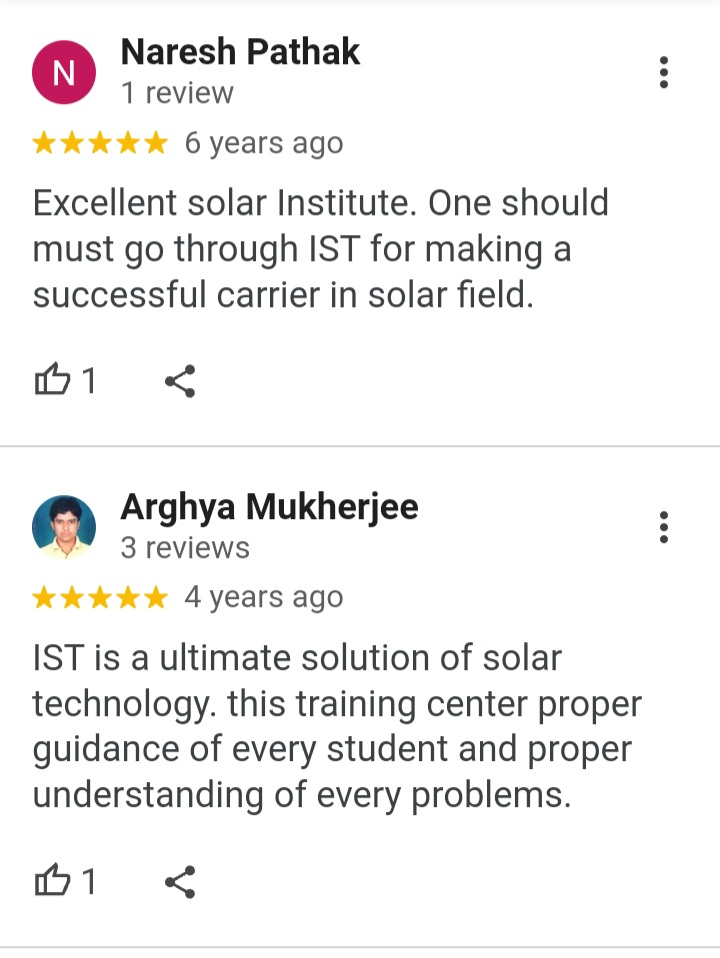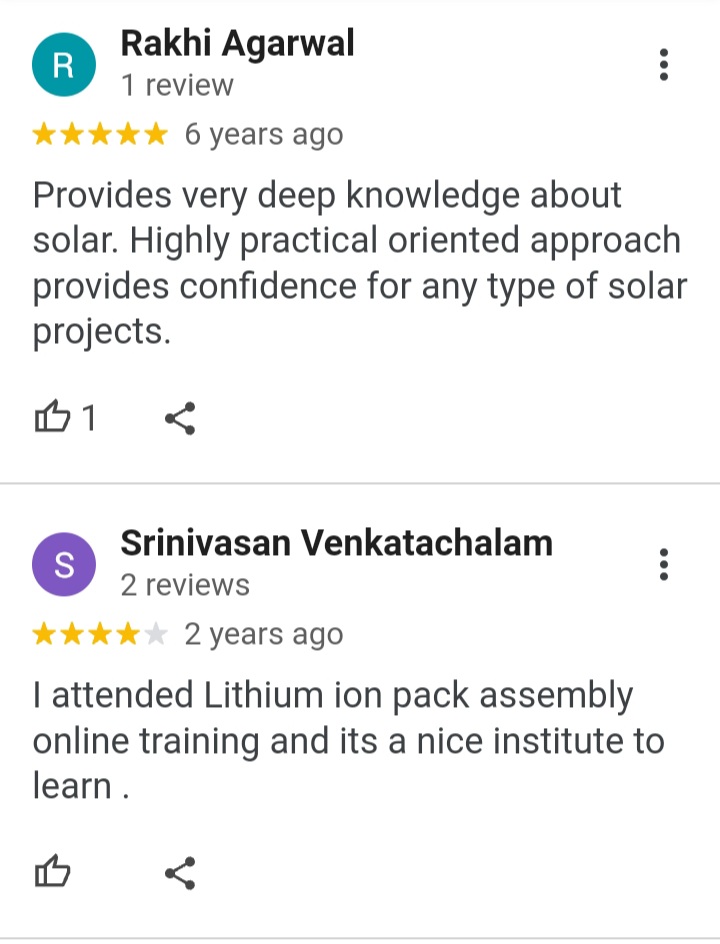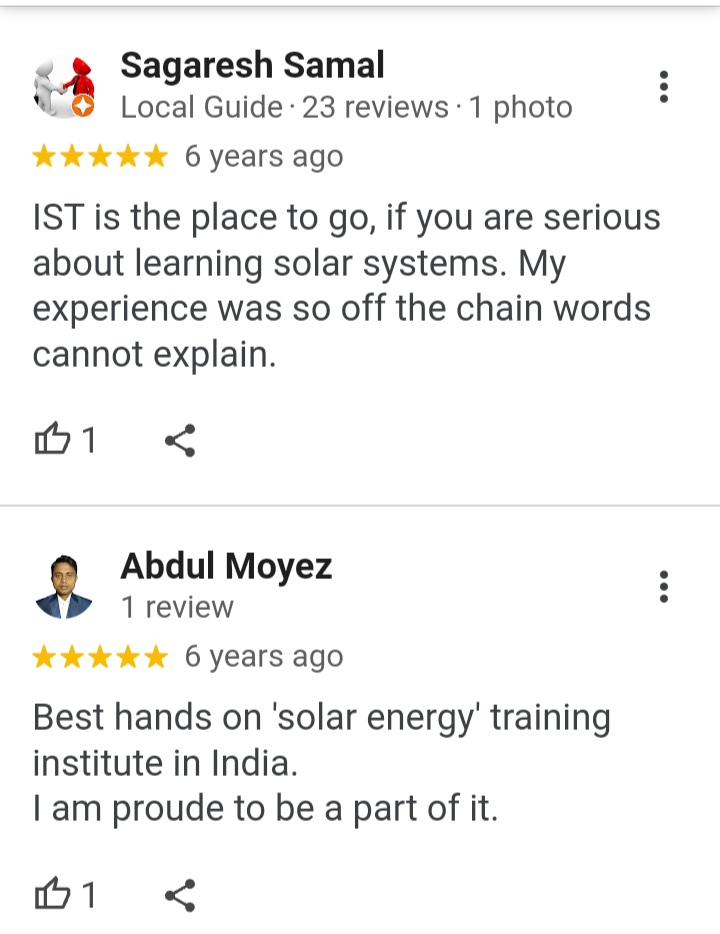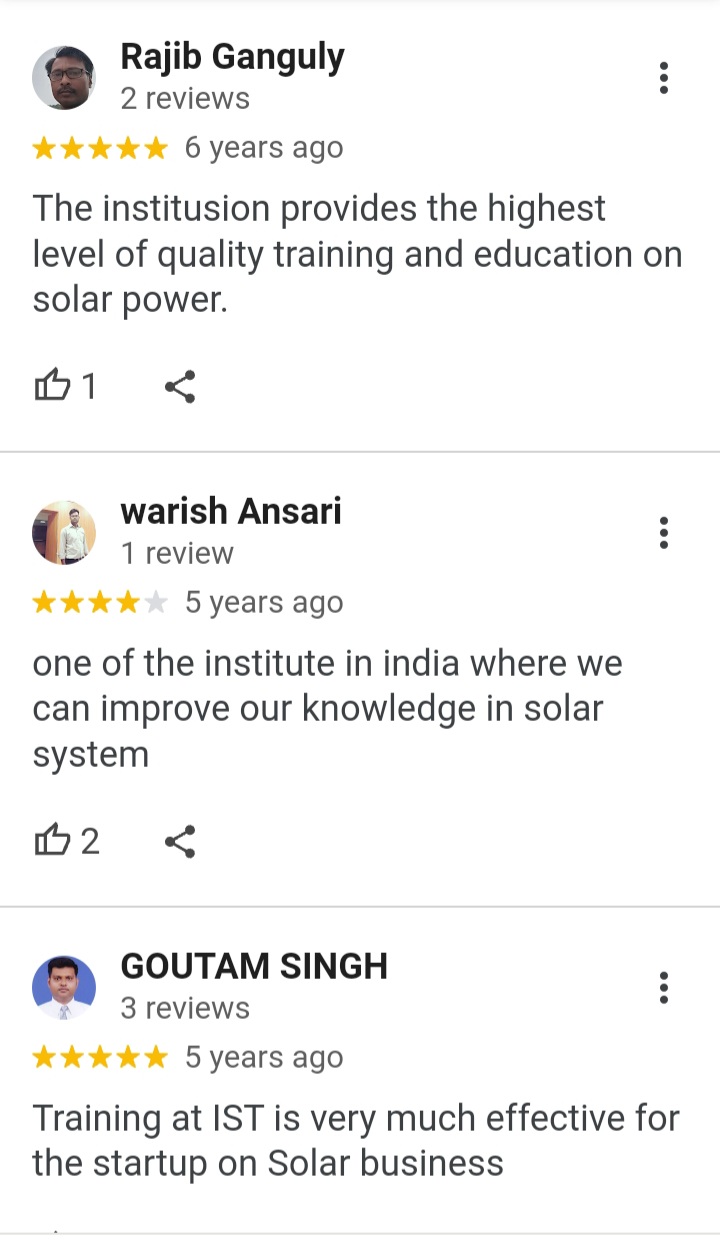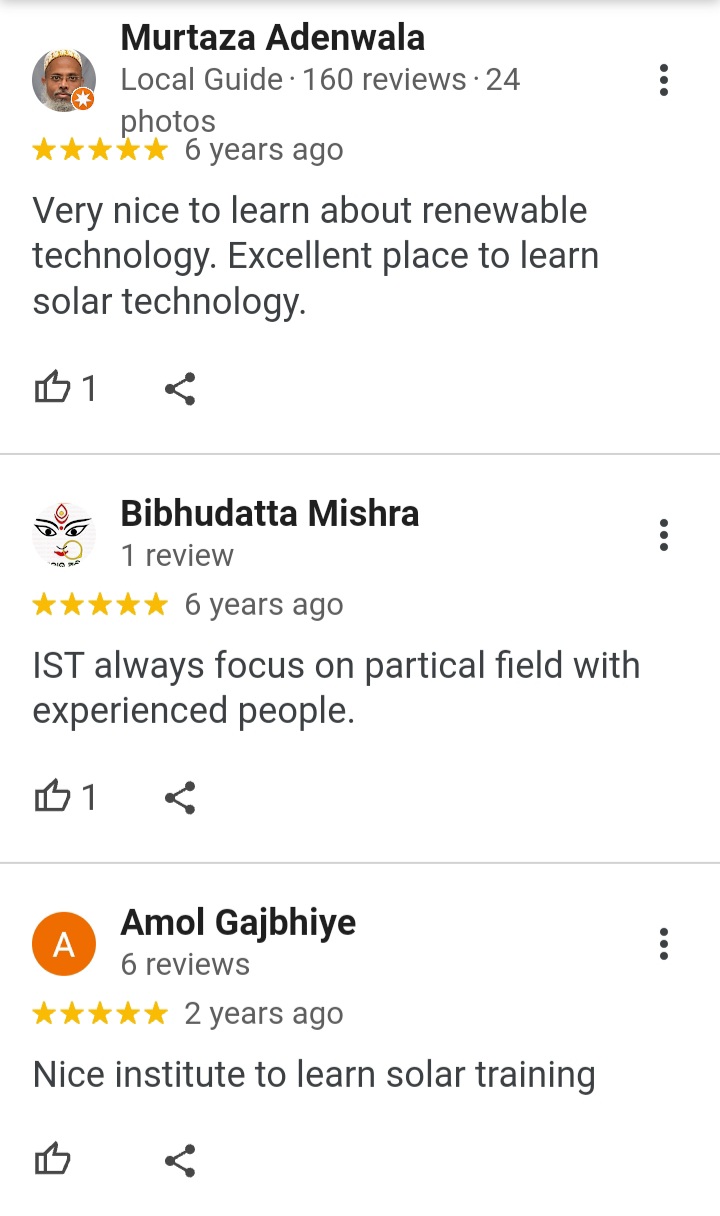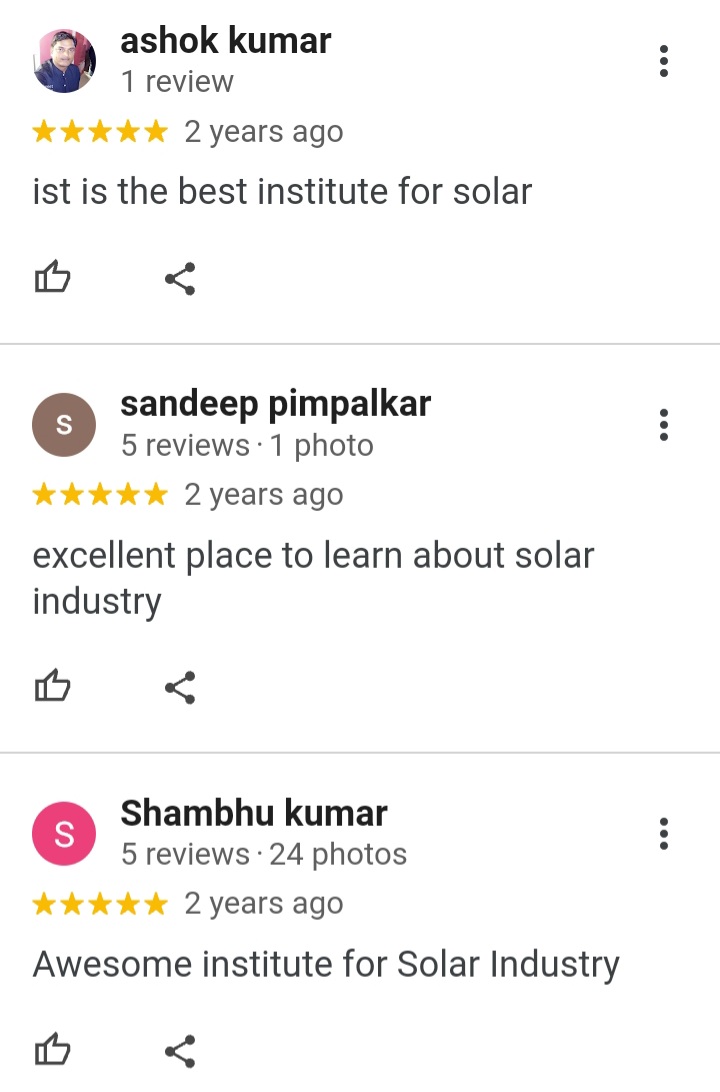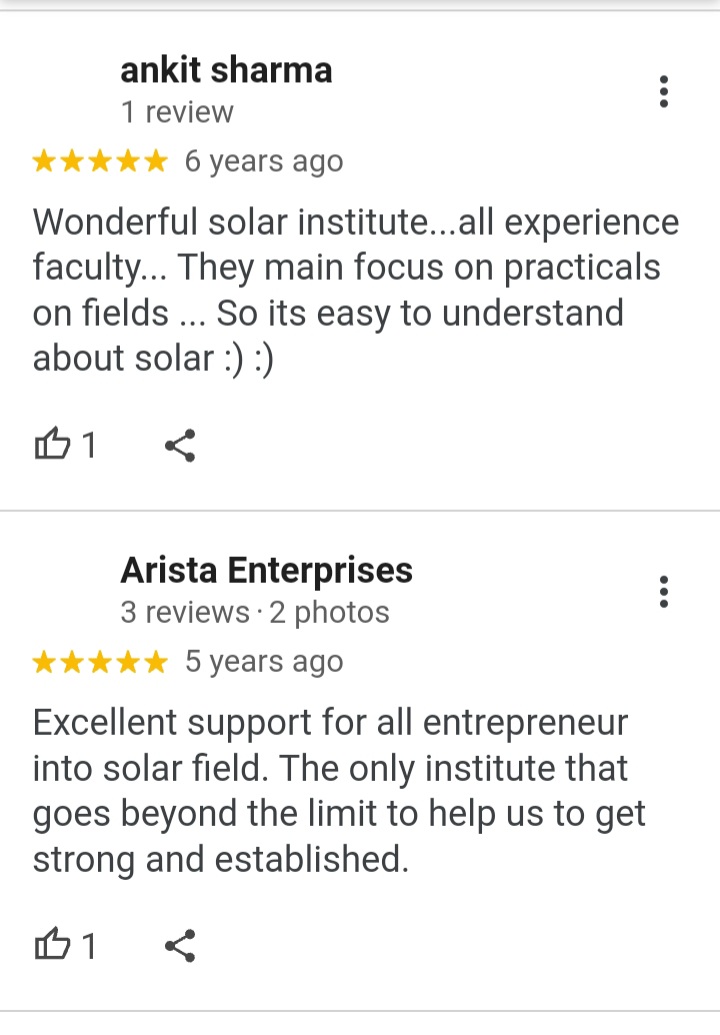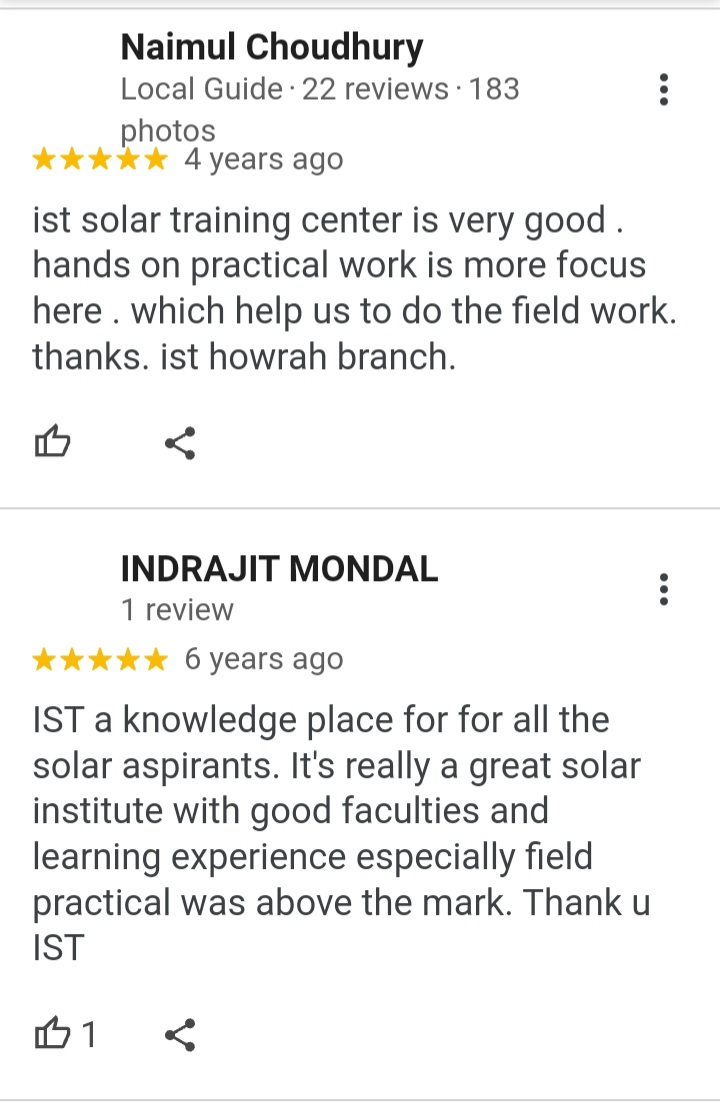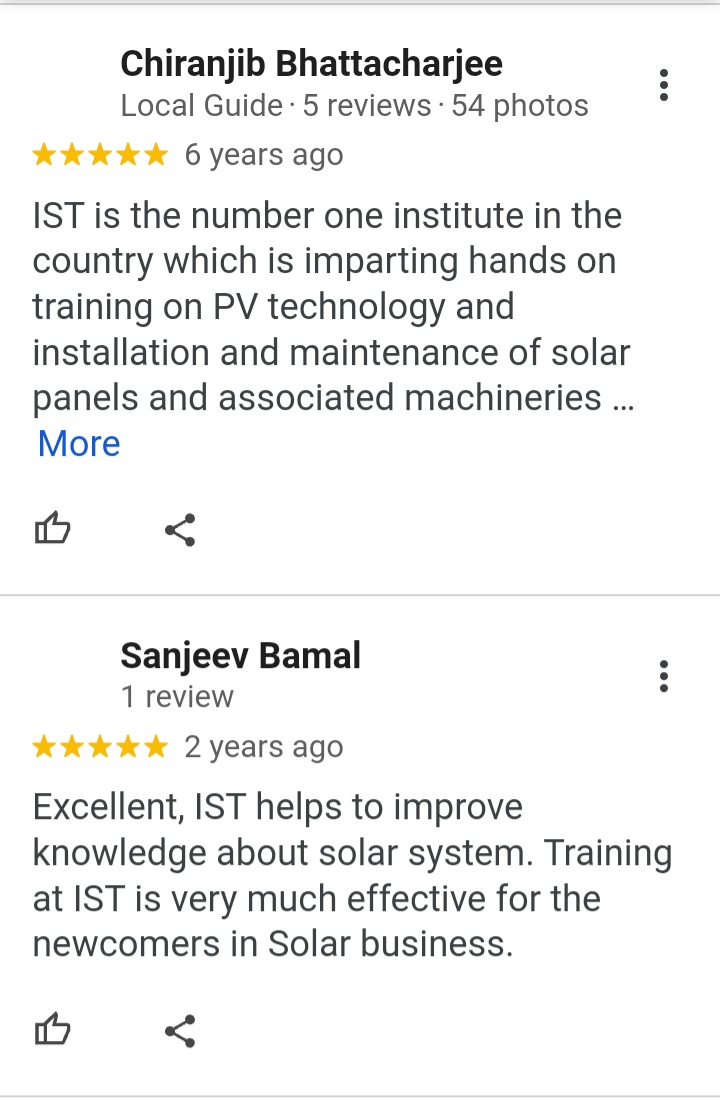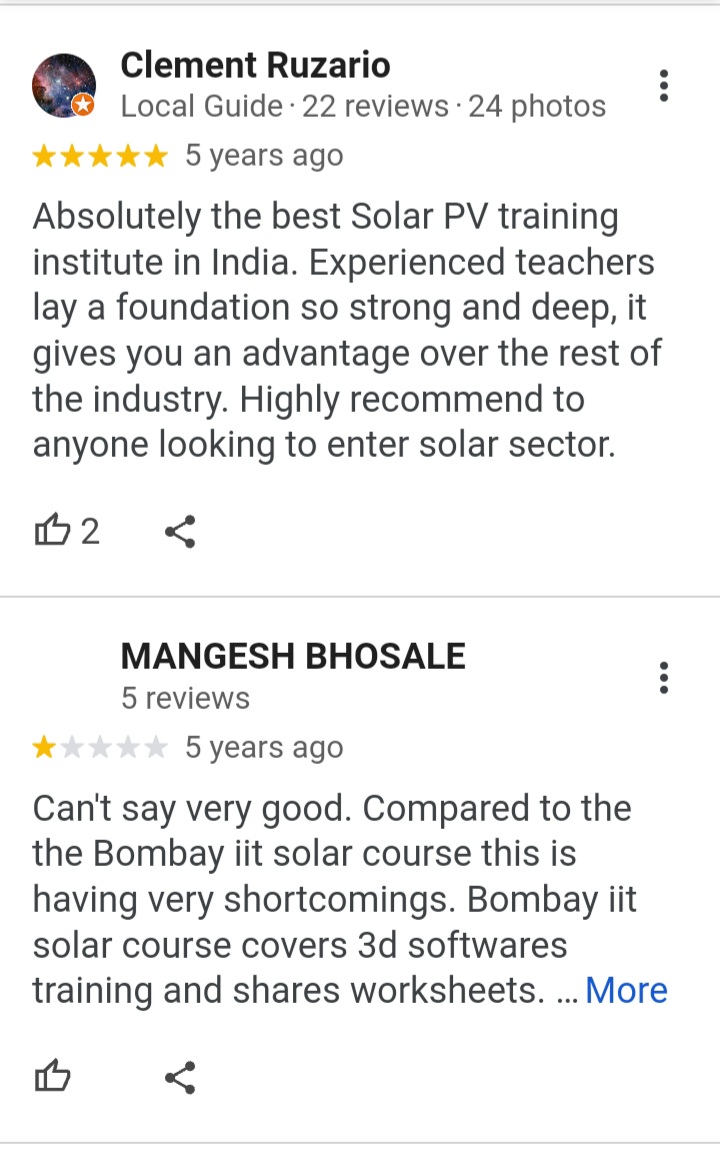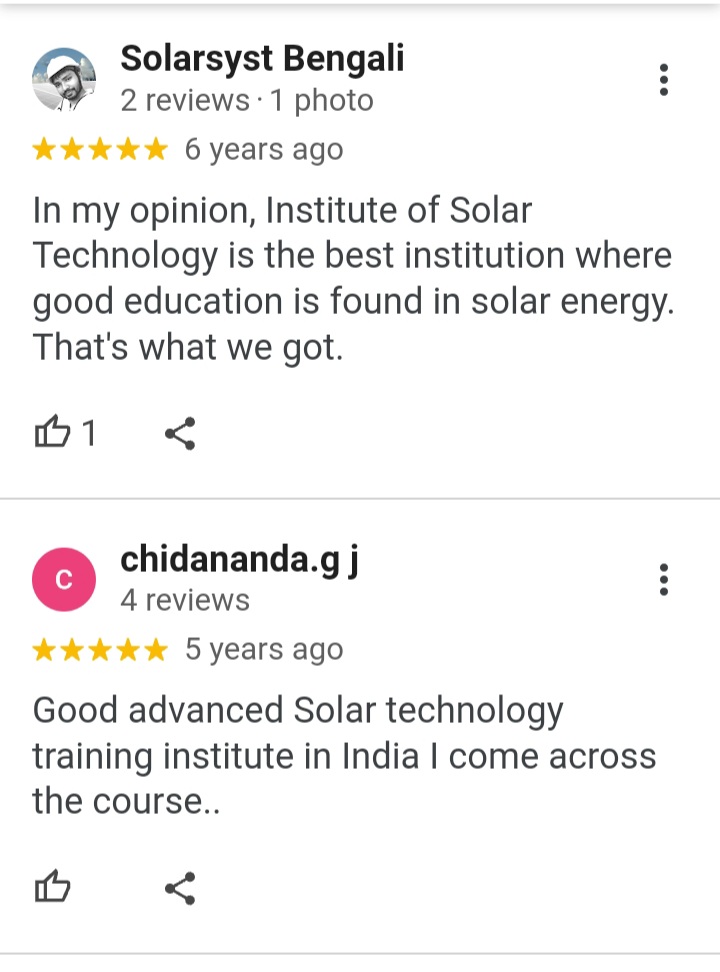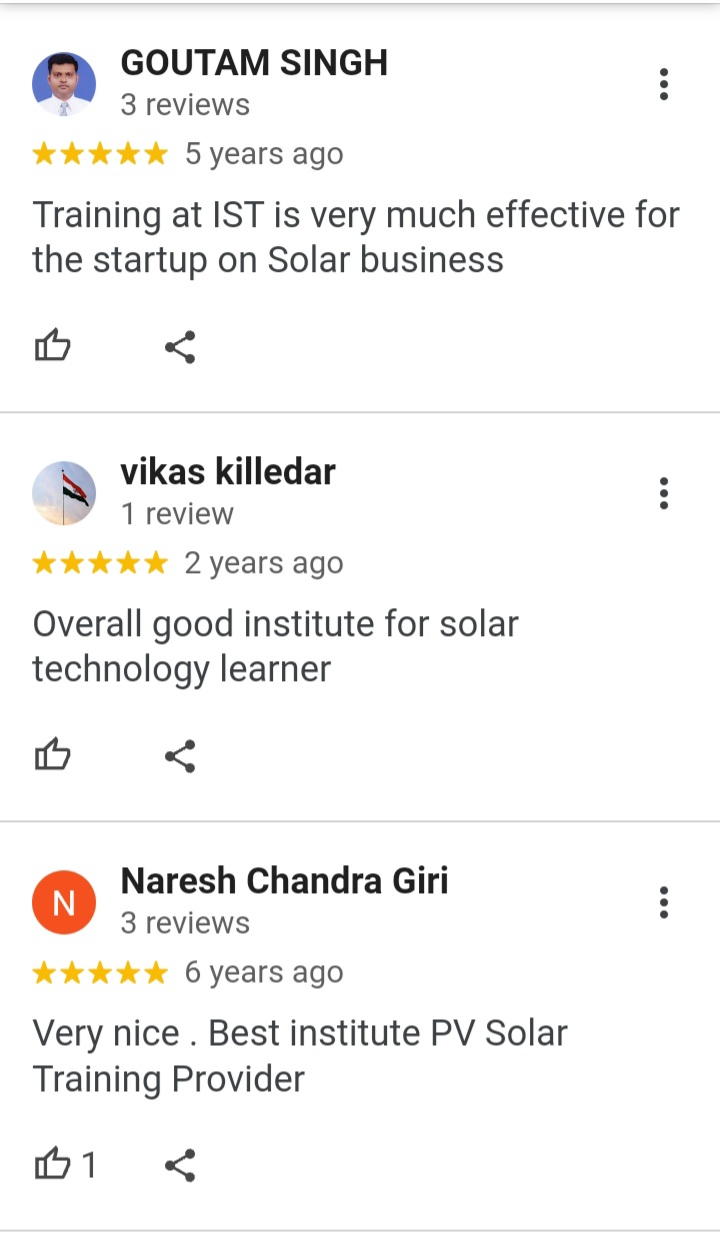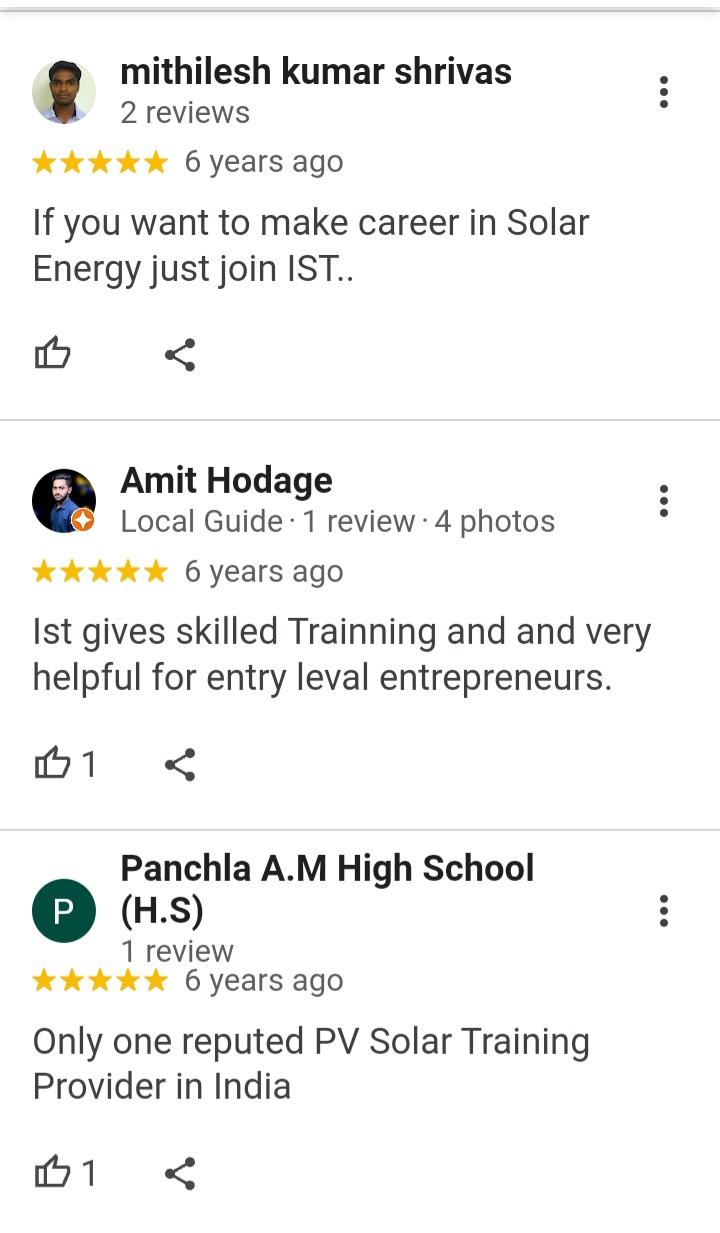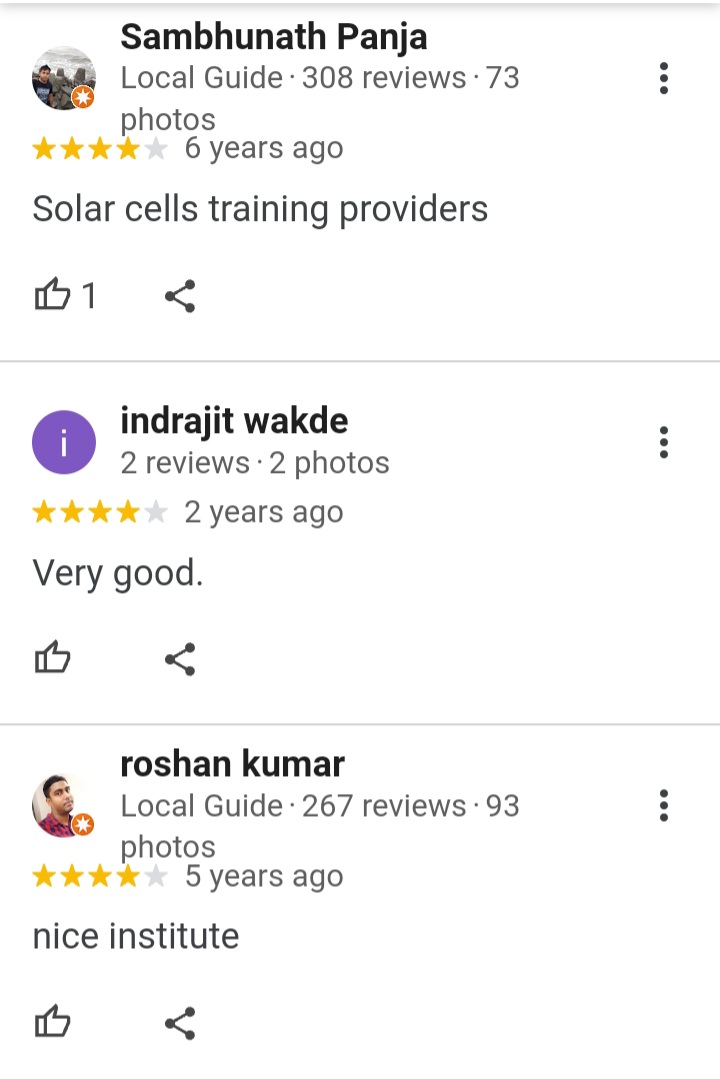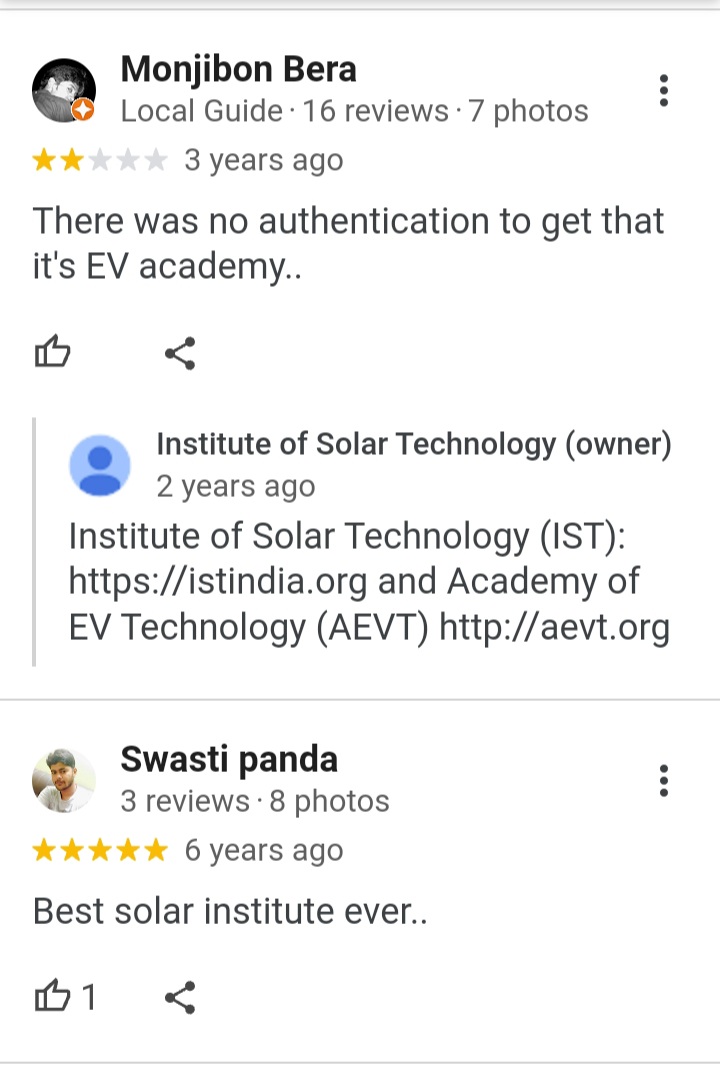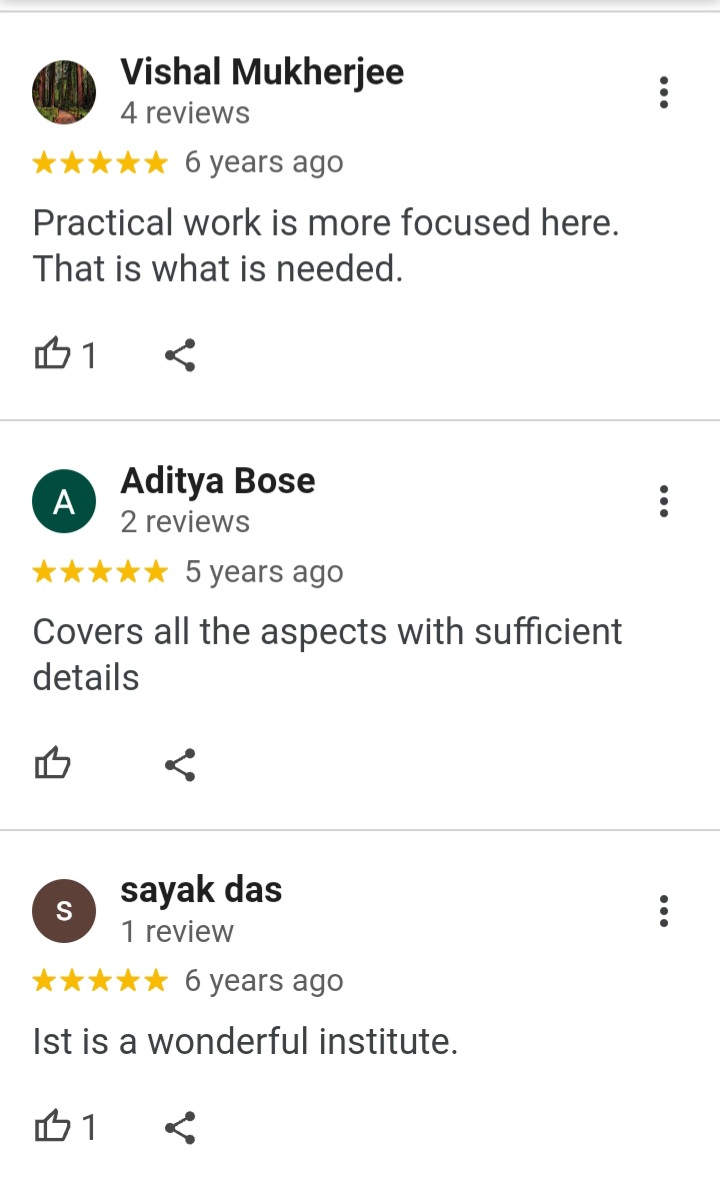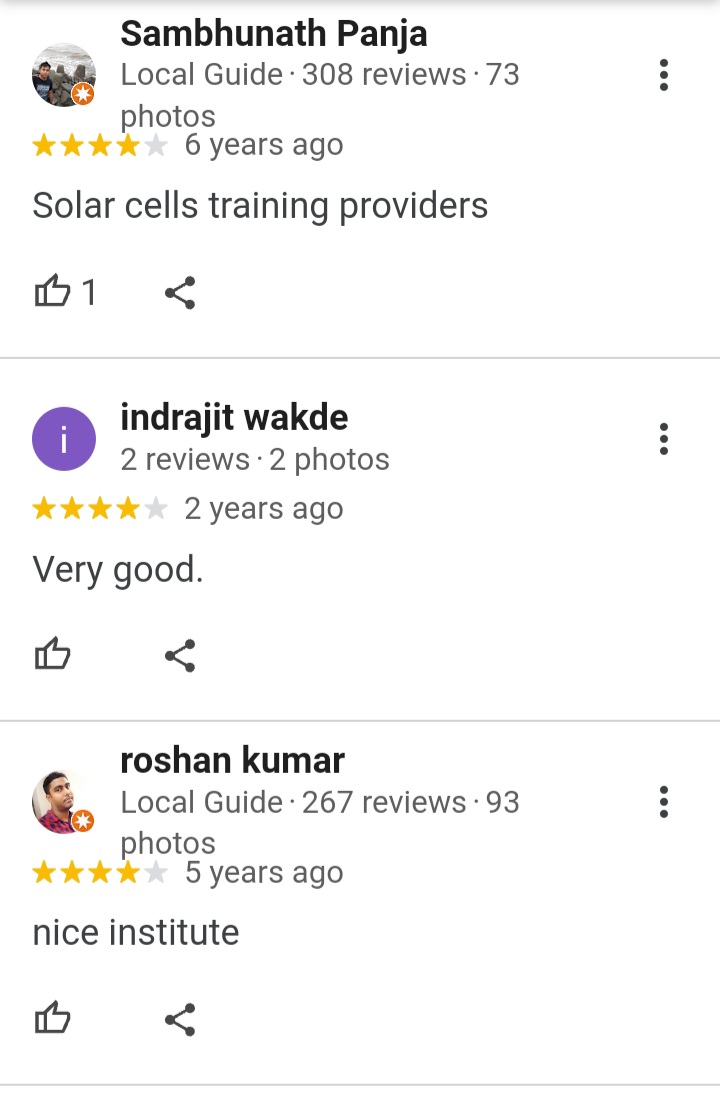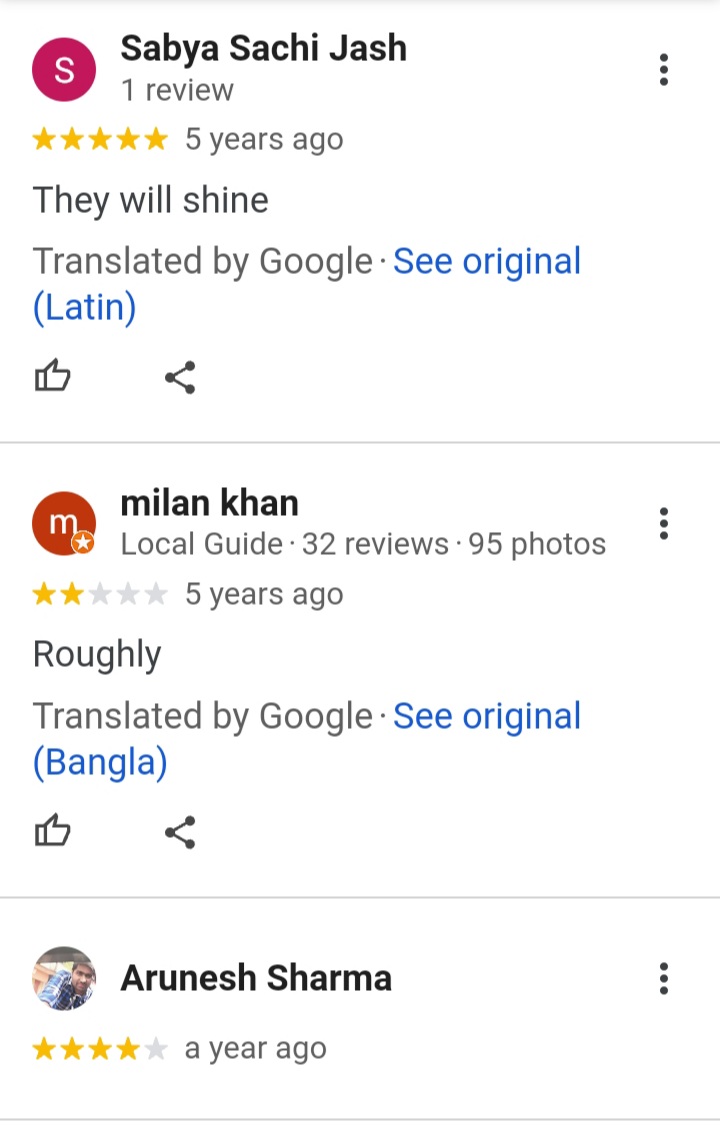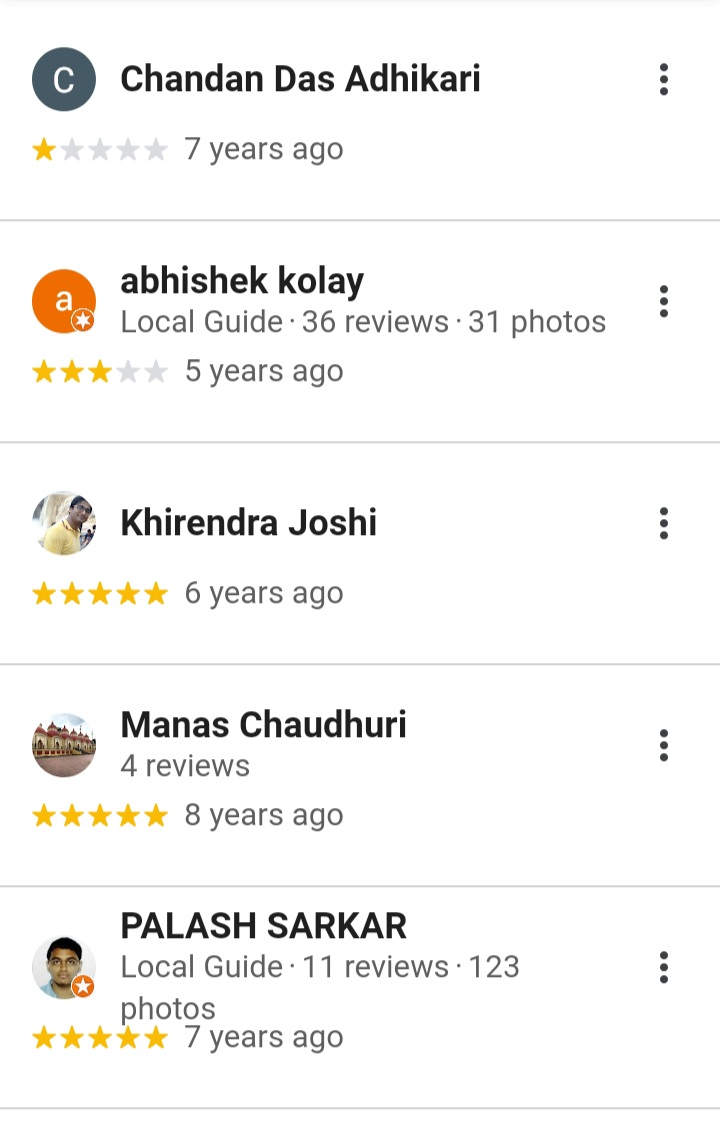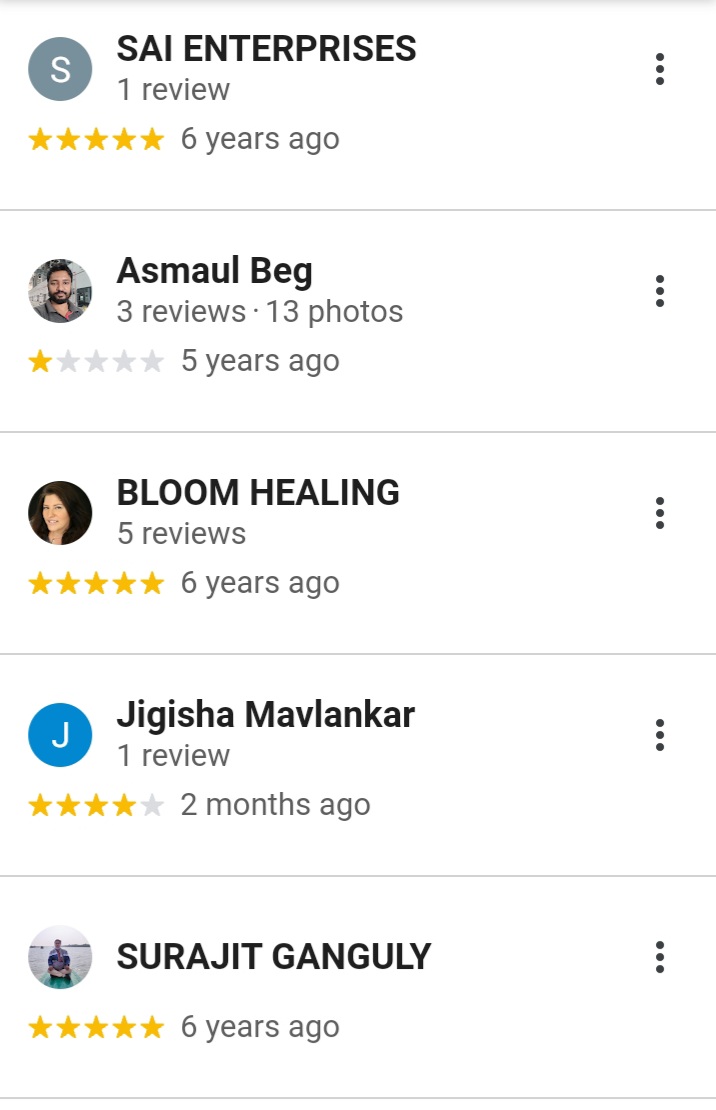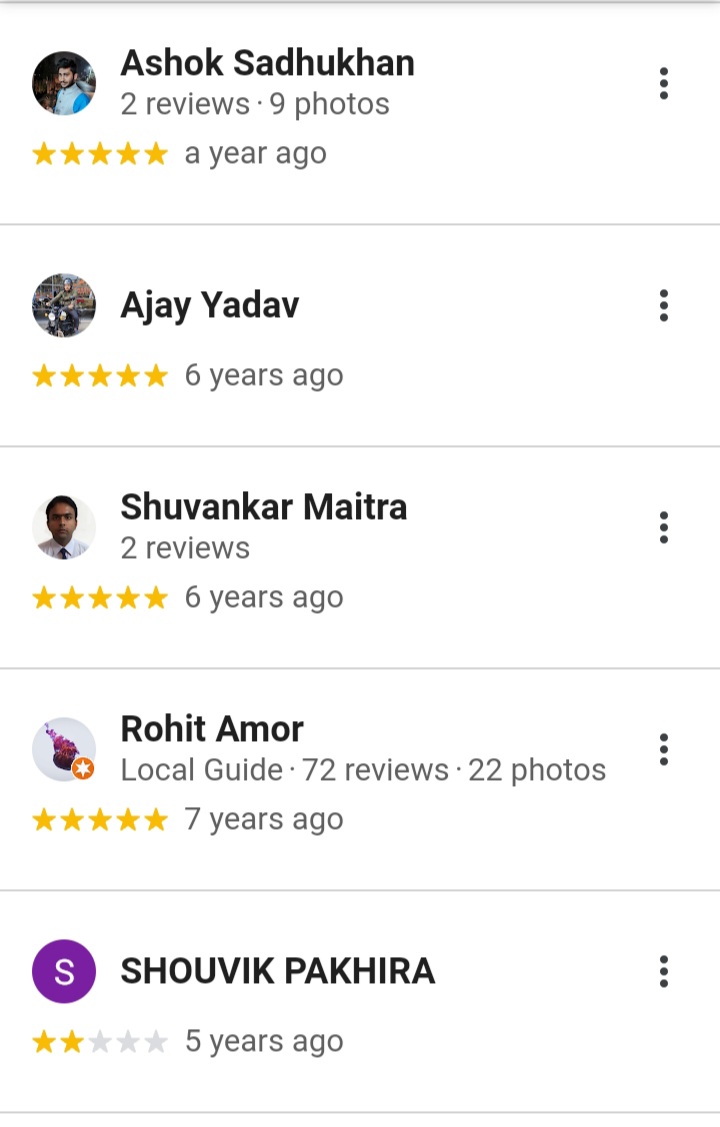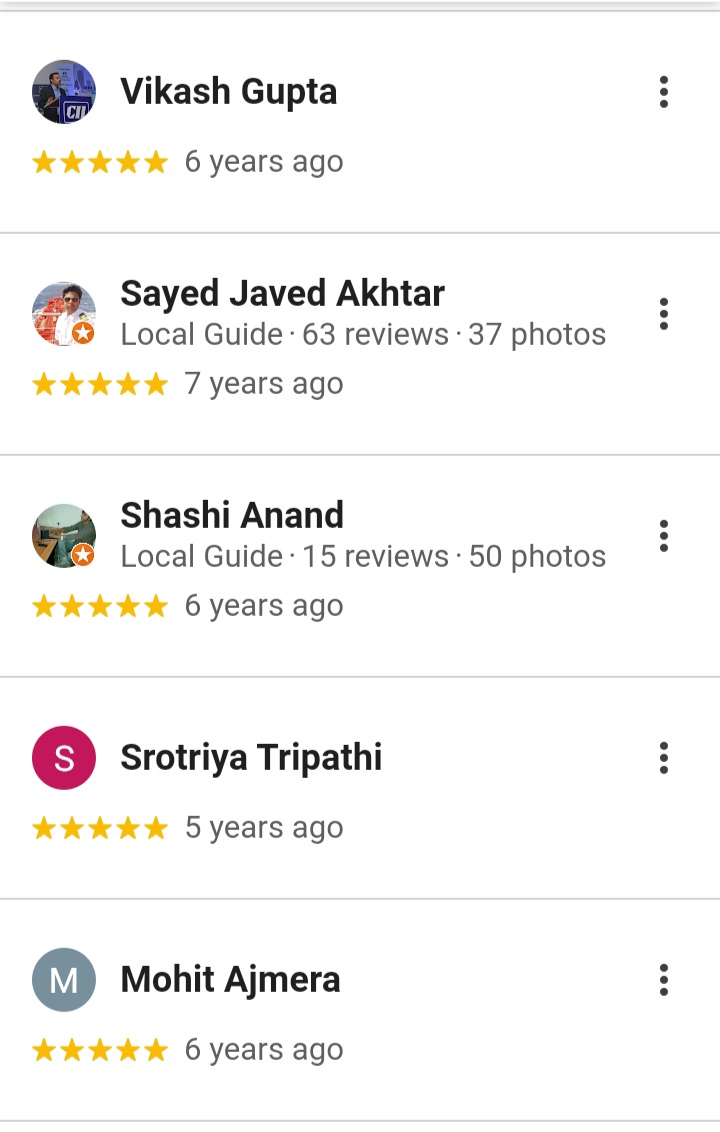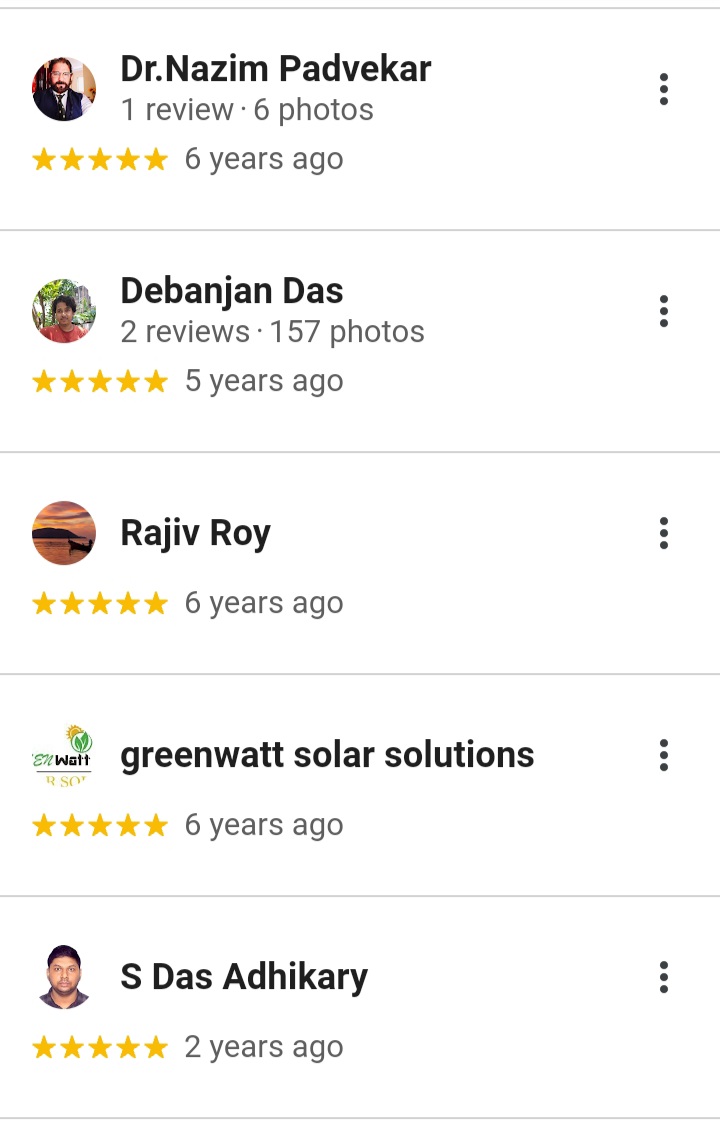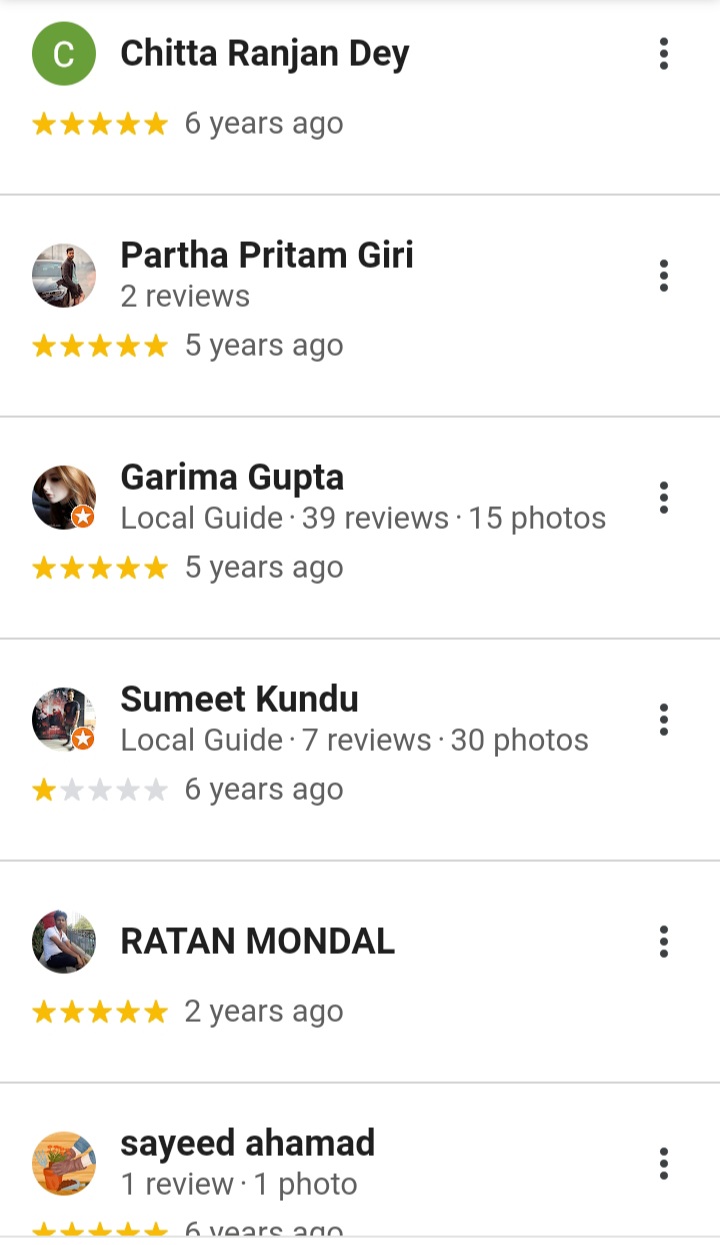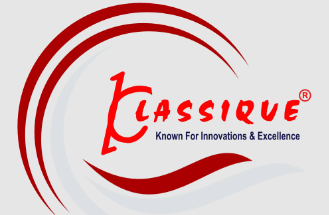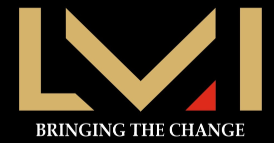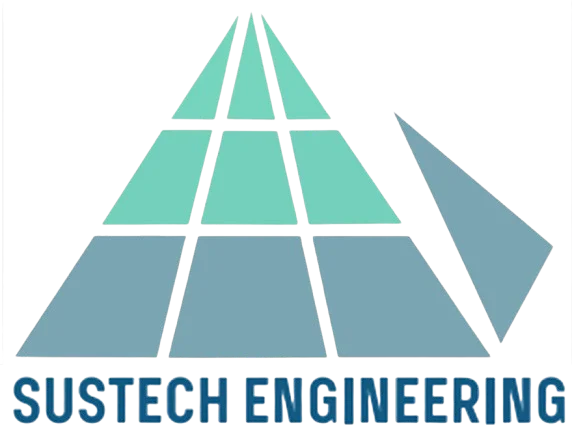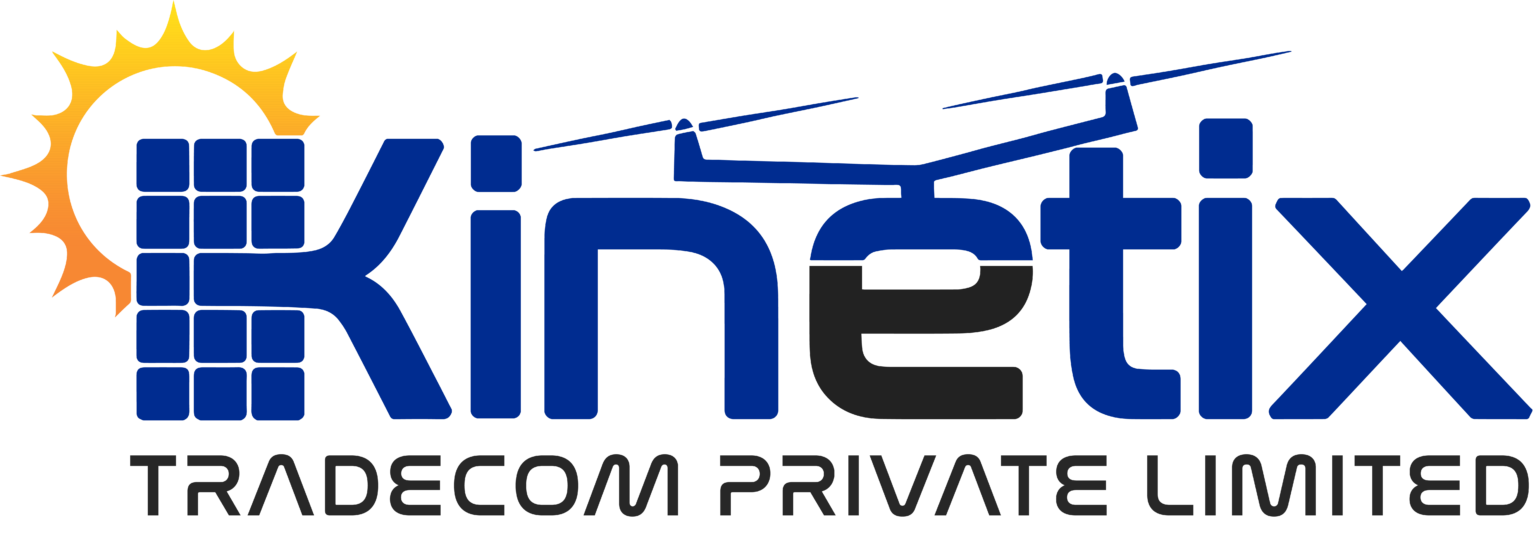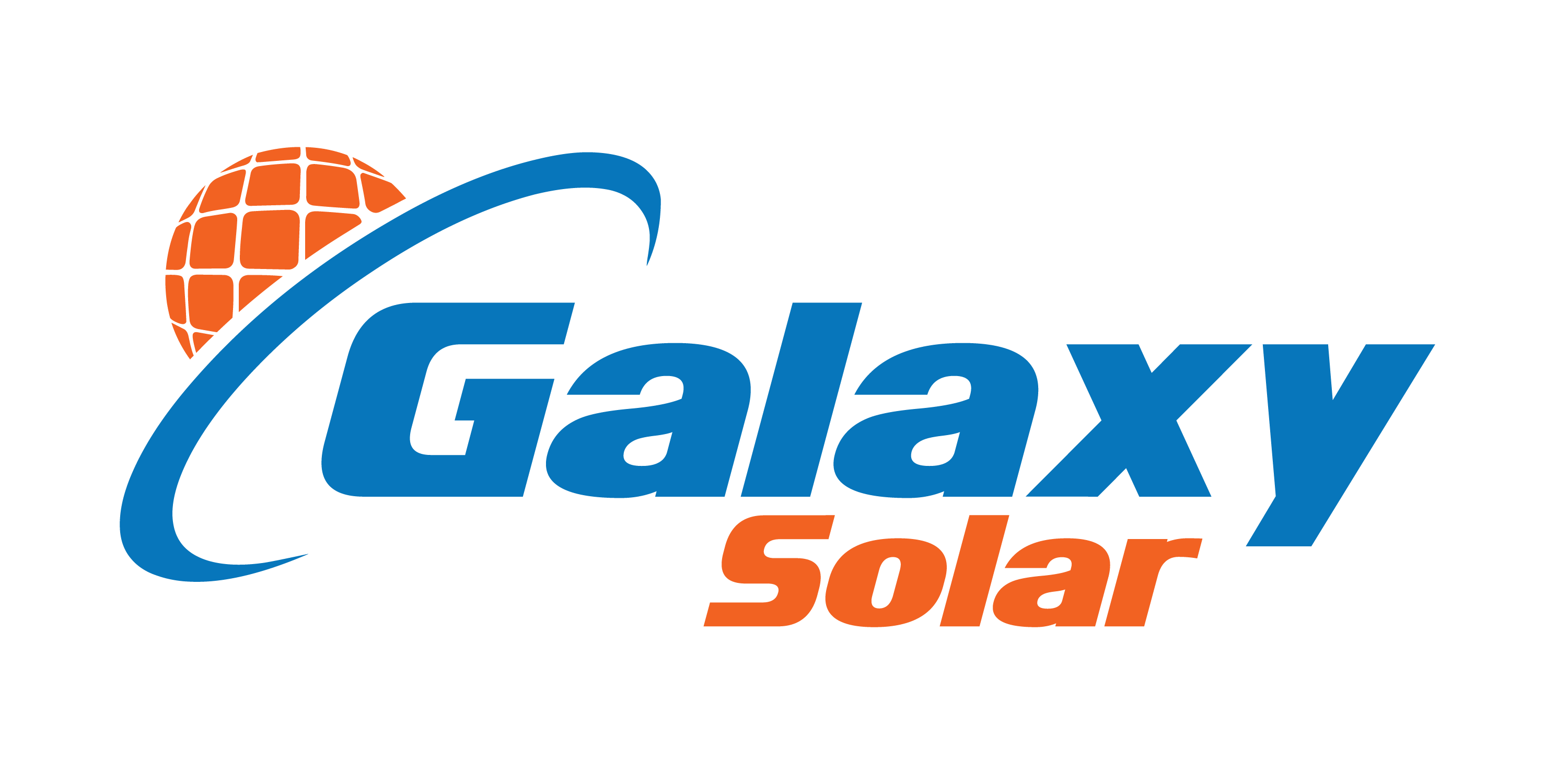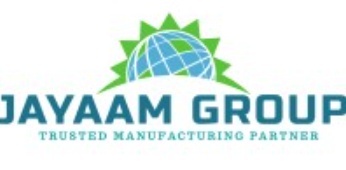Search IST Courses
Find PV Solar and Lithium-ion Battery course near by you
Similar Search results: Practical Training Government Certified
Similarity search results are visible in the form of an analysis of saved visitor search keywords and a Google Console update. Search result listed bellow. To know more, go to Home Page
Institute of Solar Technology (IST) an autonomous body for startups in solar energy training, have a milestone with 12 years of experience in Entrepreneurship Business Development, a long history of operation. Institute was founded in 2012, Indian oldest institute. To know more look "About Us" section.
2023-24 Schemes related to Solar energy - Government of India
Solar Rooftop Program
| Objective | To achieve a cumulative installed capacity of 40,000 MW from Grid Connected Rooftop Solar (RTS) projects. |
| Period of existing Phase-II scheme | Till 31.03.2026 |
| Salient Features |
Central Financial Assistance (CFA)/Subsidy is provided to the residential electricity consumers under Component-A and incentives are provided to DISCOMs under Component-B of this programme. To avail CFA a residential consumer has to apply for installation of Grid Connected Roof Top Solar (GCRTS) through any of following two mechanisms:
Component A: CFA to Residential sector - 4 GW Component B: Incentives to DISCOMs – for initial 18 GW Capacity
Admissibility of CFA for residential sector rooftop solar projects installed under Rooftop Solar Programme Phase-II (181kb PDF, 27/01/2023)
|
Pradhan Mantri Kisan Urja Suraksha (PM KUSUM)
Till 31.12.2026
| Objective |
|
| Period | Till 31.12.2026 |
| Salient Features |
|
| How to avail the financial assistance |
|
Solar Business Opportunities
The growing demand for green energy has made solar products more relevant in present times. The following are some of the recognized and undeveloped prospects for the solar energy business in India:
- Solar Projects to Develop and Own
You can also continue to work on your solar projects. All you have to do now is assemble a team of experts in solar energy and equipment. Utilize your previous experience executing solar projects by developing and implementing a solid business plan, acquiring funds, and finally constructing it. - Consultants for Solar Projects
During the solar installation project, you will be expected to supervise, monitor, and offer recommendations as a consultant. You'll be in charge of guiding clients through the whole solar installation procedure. You can either work for yourself or for a consulting firm. - Auditing of Solar Energy
This opportunity is for people who have a deep understanding of the energy situation and how to meet energy demands. This is a prerequisite for anyone interested in having solar panels installed on their property. Starting this business requires a small investment. An auditor can act as a salesperson, promoting environmental conservation through the use of natural and renewable energy sources such as solar power, as well as advising clients on how to regulate and limit their energy consumption. - Solar Product Distribution
In India, starting a distribution company in the solar energy sector could be a great business opportunity. Once you've discovered a reputable solar product manufacturer in your area, you'll need to find distributors. Then you can start trading and making money.
Lithium-ion battery Business Opportunities
The lithium-ion battery market presents numerous business opportunities, driven by the increasing adoption of electric vehicles, consumer electronics, and energy storage systems. Lithium-ion battery storage is increasingly becoming a necessity for MW-scale solar power plants, especially in regions with grid instability or limited grid capacity. The lithium-ion battery market is poised for significant growth, largely driven by the increasing adoption of electric vehicles (EVs) and the integration of renewable energy sources like solar power into the grid.
Providing end-to-end solutions for designing, installing, and maintaining Energy Storage System, including solar storage systems for homes and businesses.
Lithium-ion battery business course focus on lithium-ion battery pack assembly for various applications like electric vehicles (EVs), energy storage systems (ESS), and solar applications.
- Battery Pack Assembly: Assembling individual cells into packs tailored for specific applications like electric vehicles, energy storage, and consumer electronics.
- Specialized Batteries: Developing and manufacturing batteries for niche markets like defense equipment, medical devices, and specialized industrial applications.
- Integration with Renewables: ESS plays a vital role in balancing the intermittency of solar and wind power. Businesses can focus on developing and deploying ESS solutions for residential, commercial, and industrial applications.
Solar Project Design Master Course (Rooftop and Large solar system)
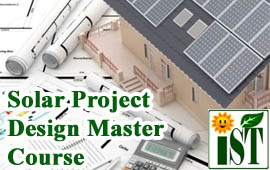 Huge job opportunity Solar Design engineer job
Huge job opportunity Solar Design engineer job
Search Solar Design Engineer Job
For working professionals, early morning or night class slot available
Key Skills for Solar Power Plant Design: Understanding Solar Technologies, Site Selection and Layout, Shading Analysis, System Design, Component Selection, Electrical Design, Grid Integration, Performance Analysis, Project Management, Financial and Economic Analysis, Regulations and Standards and Case studies.
Admission going on for 1st Batch of Mar - 2026
PV Technology & Business Management - Business Course (Online)
(Rooftop and Large solar system)

For working professionals, early morning or night class slot available
Learn about Public, Commercial and Industry Sector solar rooftop project – availability, requirement, benefits and business opportunities.
Admission going on for Mar - 2026
Lithium-ion Battery Pack Assembly course (Solar, Energy storage and EV Battery)
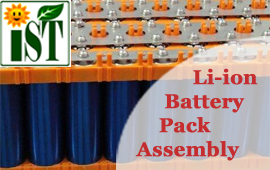 Don’t wait any longer to learn about Lithium-ion, Take our business Course today and start your journey towards a more sustainable future.
Don’t wait any longer to learn about Lithium-ion, Take our business Course today and start your journey towards a more sustainable future.
For working professionals, early morning or night class slot available
Practical training - cell sellection, cell IR testing, cell balancing, charge discharge testing, module & pack assembling, enclosure selection, all machinery selection, assembly line planning and layout drawing, costing of assembly line, working capital, investment, ROI, business projection making, different product design.
Get the knowledge of Lithium-ion cell parameters, Cell Chemistry, Cell Architecture, Thermal Management, BMS and battery pack assembly technical and commercial detail before setup assembly line.
Admission going on Mar - 2026
Solar Power EV Charging Station Design Course
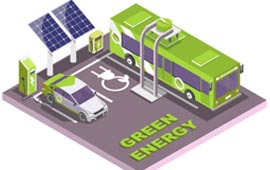 Combo course including Solar PV Technology, Lithium-ion Battery Technology and EV Charging Station Technology
Combo course including Solar PV Technology, Lithium-ion Battery Technology and EV Charging Station TechnologyFor working professionals, early morning or night class slot available
Solar charging stations for electric vehicles have emerged as one of the best ways to reduce India’s dependence on fossil fuels. Nearly everyone who owns an Electric vehicle will install a solar charging station in their home. Certificate in Solar Power EV Charging Station (Design and Development) Training Program is a master courses that takes an Engineer, designe engineer, installer from site assessment, all the way through power-up and pinpointing.
Admission going on for Mar - 2026
IST also provides information on free government solar training programs, such as the PM KUSUM scheme. Govt free training is not available right now at IST but will start soon!. Visit us after some days, we will update.
Here's a more detailed look at what makes IST stand out:
Practical Training:
IST focuses on providing practical, hands-on training in the solar sector. This includes training on the latest products and technologies used in solar installations.
Industry-Standard Syllabus:
The institute uses an industry-standard syllabus, ensuring that students are equipped with the knowledge and skills needed for the solar industry.
Expert Faculty:
Reviewers praise the quality of instructors and the ease with which complex topics are explained, according to the Institute of Solar Technology Advisors.
Focus on Entrepreneurship:
IST aims to empower students to become solar entrepreneurs, providing them with the knowledge and skills to start their own businesses in the solar field
Support and Resources:
IST provides resources like an e-library and round-the-clock support, fostering self-learning and development.
Alumni Success:
IST boasts a network of successful alumni who have made notable contributions to the solar industry.
Pioneer in PV Solar Technology:
IST is recognized as a leader in PV solar technology training and has been an academic partner with the national and international University
Quick Inquiry Form

Interactive Classes

Practical & Doubt Classes

E-Library Study Materials

Online Examination




